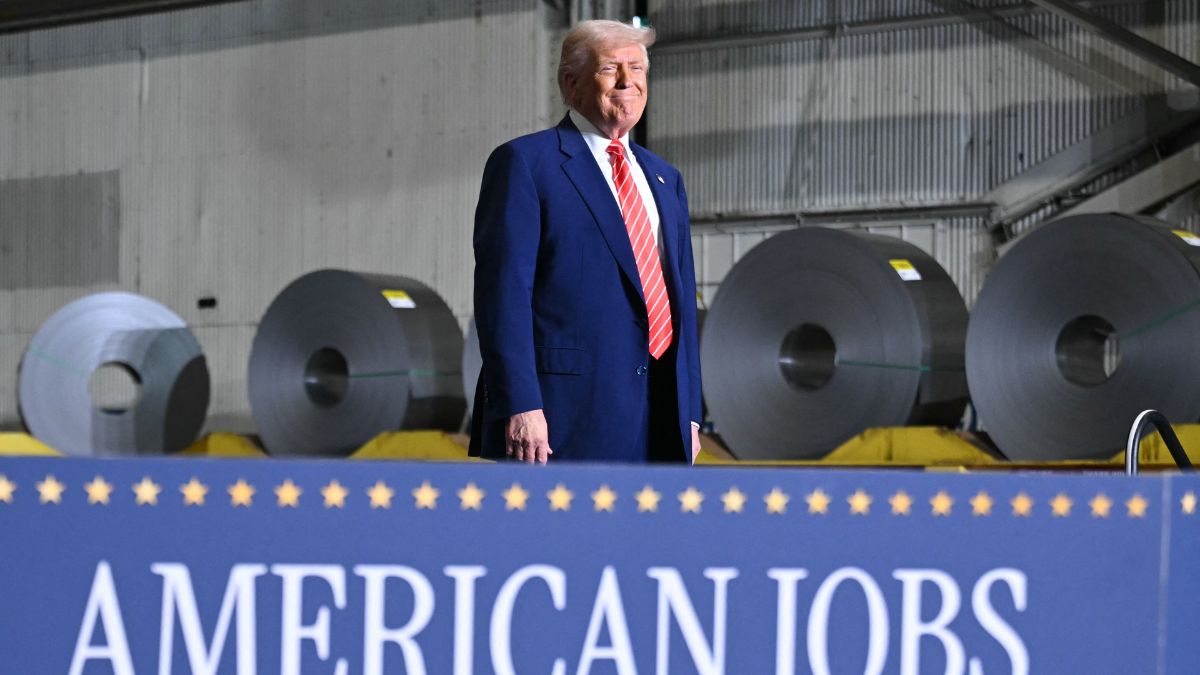US President Donald Trump has announced that his administration would double the current tariff rate on steel imports from 25 per cent to 50 per cent, days after the country secured a deal with Japan’s Nippon Steel.
Speaking at a rally in Pennsylvania, the president defended his move, saying that the increased tariff will ensure a boost in domestic steel production and improve national output while reducing dependency on China.
“We’re going to bring it from 25 per cent to 50 per cent, the tariffs on steel into the United States of America, which will even further secure the steel industry,” he said.
“Nobody’s going to get around that,” he added in the speech before blue-collar workers in the battleground state that helped deliver his election victory last year.
The White House has said that the hiked tariff rates will come into effect from next week.
“There will be no layoffs and no outsourcing whatsoever, and every US steel worker will soon receive a well deserved $5,000 bonus,” the US president told the crowd filled with local steelworkers.
US Steel-Nippon deal
Trump also mentioned the recently inked deal with Nippon Steel with US Steel , which he emphasised “will remain in America with its headquarters in Pittsburgh”.
Without going into the details of the partnership, Trump reiterated that “US Steel will continue to be controlled by the USA.”
On Friday, he said that as part of its commitment, Nippon would invest $2.2 billion to boost steel production in the Mon Valley Works-Irvin plant, where he was speaking.
Impact Shorts
More ShortsAnother $7 billion would go towards modernising steel mills, expanding ore mining and building facilities in places including Indiana and Minnesota.
Trump tariffs gain temporary relief
The announcement on steel tariffs comes after a US appeals court granted the Trump administration a temporary reprieve for the president’s aggressive tariff measures, following a ruling by the Court of International Trade found the duties illegal.
The latest ruling by an appellate court will allow the government to continue collecting foreign taxes as part of US President Donald Trump’s sweeping tariff measures, reconfiguring US trade ties with the world.
With inputs from agencies
)